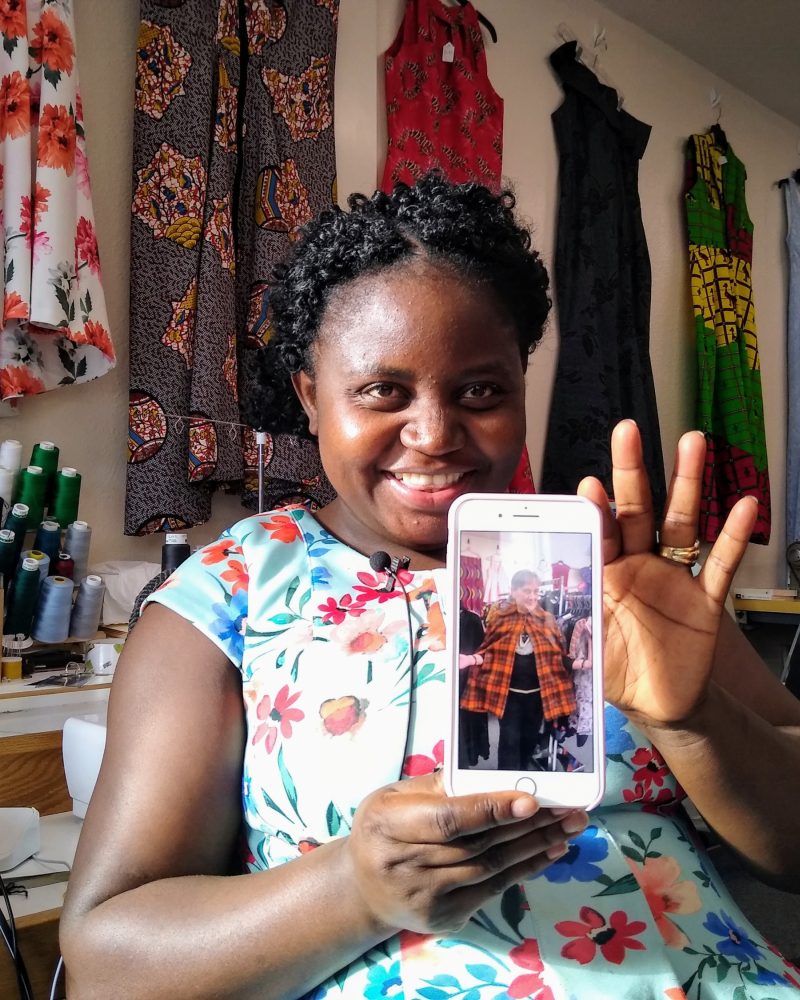Belonging: Undeniable
I want them to dream, to know that we can do it too.

Natalie was orphaned during civil war in the Democratic Republic of Congo when she was seven. She spent the next decade in orphanages and foster care in Kenya and the United States. A seamstress, she now owns a dress shop where she creates custom-made clothing for her clients.
I lived in foster care for five years. After coming here, my dream [to be self-sufficient] started when I could see that after foster care, I would be homeless. While I was still in school, I was working in Home Depot. [One time] I told my boss that I cannot make it to today because I need to do homework. (Because for us, English is a second language. You need to put in more than Americans to be able to pass the test.) So, when I told my boss, “Please, I need only two hours [then] I will come to work,” he told me, “If you don’t come, you have no job.” The manager was really not nice.
Well, at work I was wearing a dress that I had made. And this guy came to me and said, “Oh, my goodness, you look undeniable.” I said, “Undeniable?” So, I went to Google the word, and it was so beautiful! And I was like, I’m going to start my own shop and it will be called, “Undeniable.”
I opened [my dress shop] here so I can teach foster-care kids skills. I can teach them, and they can work here. If they don’t want to learn [sewing] skills, they can work here and go to school and do the homework. As long as they are doing it faithful, you know, showing me that they’re doing something to make them better. Because I went through it. I understand the pain of [working hard to achieve goals]. Some people think foster kids are lazy, they don’t work. It’s not true! They did not have training. They don’t have role models to see people working. For foster kids, we think we’re always made to be homeless, just to live on minimum wage and stuff. I want to break that! I want to show them that we can do something! We can live better lives like other people. I don’t want them to settle for small things. I don’t want that! I want them to dream, to know that we can do it too.
Our team members obtain informed consent from each individual before an interview takes place. Individuals dictate where their stories may be shared and what personal information they wish to keep private. In situations where the individual is at risk and/or wishes to remain anonymous, alias names are used and other identifying information is removed from interviews immediately after they are received by TSOS. We have also committed not to use refugee images or stories for fundraising purposes without explicit permission. Our top priority is to protect and honor the wishes of our interview subjects.